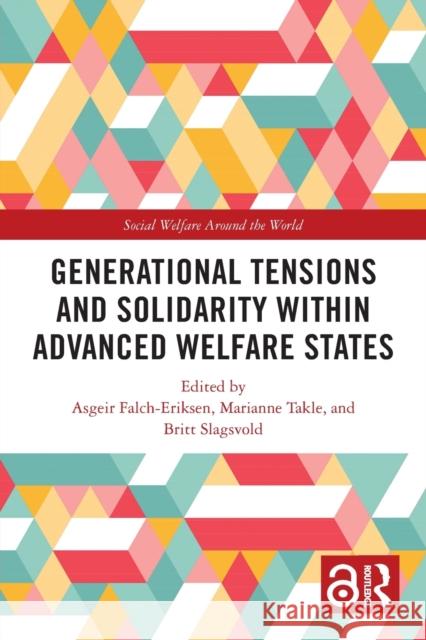Generational Tensions and Solidarity Within Advanced Welfare States » książka
Generational Tensions and Solidarity Within Advanced Welfare States
ISBN-13: 9780367654757 / Angielski
Generational Tensions and Solidarity Within Advanced Welfare States
ISBN-13: 9780367654757 / Angielski
(netto: 209,00 VAT: 5%)
Najniższa cena z 30 dni: 196,40
ok. 16-18 dni roboczych.
Darmowa dostawa!
This book explores generation as both a reference to family or kinship structures, and a reference to cohorts or age sets. The principal objective is branching out this two-part concept through studies of tensions and solidarity within and between generations of advanced and robust welfare states. Answering key questions using multiple disciplinary approaches, the book considers how generations challenge advanced and robust welfare states; how new and young generations are affected by living in an advanced welfare state with older generations; how tensions or solidarity are understood when facing challenges; and what the key characteristics are of certain generation types. It contributes to the development of a more comprehensive generation approach within social sciences by developing the concept of generation by exploring different challenges to the welfare state such as migration, digitalization, environmental damages, demands for sustainability, and marginalization. Highlighting the escalating tensions and altered versions of solidarity between generations, this book shows how a comprehensive concept of a generation can create new insights into how we collectively coordinate and resolve challenges through the welfare state. It will be of interest to all scholars and students of social policy, sociology, political science, and social anthropology.
This book explores generation as both a reference to family or kinship structures, and a reference to cohorts or age sets. The principal objective is branching out this two-part concept through studies of tensions and solidarity within and between generations of advanced and robust welfare states.
Answering key questions using multiple disciplinary approaches, the book considers how generations challenge advanced and robust welfare states; how new and young generations are affected by living in an advanced welfare state with older generations; how tensions or solidarity are understood when facing challenges; and what the key characteristics are of certain generation types. It contributes to the development of a more comprehensive generation approach within social sciences by developing the concept of generation by exploring different challenges to the welfare state such as migration, digitalization, environmental damages, demands for sustainability, and marginalization. Highlighting the escalating tensions and altered versions of solidarity between generations, this book shows how a comprehensive concept of a generation can create new insights into how we collectively coordinate and resolve challenges through the welfare state.
It will be of interest to all scholars and students of social policy, sociology, political science, and social anthropology.











